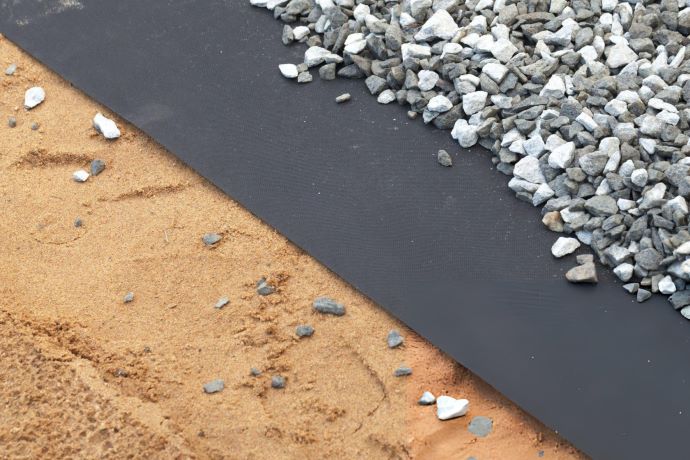Recycled Polypropylene for Furniture Manufacturers
Key Takeaways:
- Cost & sustainability: Recycled polypropylene (rPP) helps furniture manufacturers cut costs and meet sustainability goals without compromising quality.
- High performance: With fiber reinforcements, compatibilizers, and UV stabilizers, rPP delivers strong, weather-resistant, and attractive furniture.
- Market advantage: Demand for eco-friendly furniture is growing, and governments are rewarding recycled content—making rPP a smart, future-proof choice
In today’s market, producing high-quality furniture is not enough—you also need to align with sustainability trends and rising regulations. Recycled polypropylene (rPP) has become more than just an alternative to virgin plastics. It’s a cost-efficient, eco-friendly material that appeals to buyers, retailers, and regulators alike.
By switching to rPP, manufacturers can cut raw material costs, reduce carbon footprint, and capture new market segments willing to pay for greener products.
Benefits of rPP in Furniture
1. Cost Efficiency
- Lower raw material cost: rPP is typically cheaper than virgin polypropylene.
- Reduced waste: Advanced sorting and cleaning minimize defects and reduce production losses.
- Predictable supply: With growing recycling infrastructure, consistent rPP streams are available.
2. Sustainability Advantages
- Environmental impact: Using rPP keeps plastics out of landfills and cuts CO₂ emissions.
- Brand positioning: Companies using rPP can market themselves as sustainable leaders.
- Compliance: Many regions now require or incentivize recycled content in consumer goods.
3. Strong Material Properties
- Durability: High-quality rPP has tensile strength in the 20–30 MPa range—strong enough for chairs, tables, and storage units.
- Weather Resistance: With UV stabilizers, rPP can withstand prolonged sun exposure and moisture, making it ideal for outdoor furniture.
- Design flexibility: rPP supports a wide range of colors, finishes, and textures.
Also Read : Virgin vs Recycled Polypropylene: Key Quality Differences
Where rPP Works Best in Furniture
You can confidently use rPP in multiple product categories:
- Outdoor furniture: Garden chairs, loungers, patio tables—durable and weather-resistant.
- Office furniture: Lightweight ergonomic chairs, desks, and storage cabinets.
- Storage solutions: Bins, modular shelving, and stackable boxes that combine durability with sustainability.
How to Improve rPP Performance in Your Products
1. Fiber Reinforcements
Adding natural fibers (hemp, wood, jute) or glass fibers increases stiffness and load-bearing strength—perfect for heavy-duty furniture.
2. Compatibilizing Agents
Agents like maleic anhydride-grafted polypropylene (MAPP) improve bonding between rPP and fillers, giving stronger, longer-lasting products.
3. Processing Additives
- UV stabilizers → Outdoor weather resistance.
- Plasticizers → Improved flexibility.
- Pigments → Wide color and texture options.
Read More : Step-by-Step Guide - Switch from Virgin to Recycled Polypropylene
Overcoming Manufacturing Challenges with rPP
| Challenge | Solution |
| Material consistency | Partner with trusted suppliers and request Certificates of Analysis (CoA). |
| Processing adjustments | Tune processing parameters: melt temp ~200–250°C, drying before molding, optimized screw design. |
| Surface defects | Use pigments, proper mold venting, and compatibilizers to reduce flow lines and discoloration. |
Buyer’s Checklist: What to Ask Your rPP Supplier
When sourcing rPP, always request a CoA with these key properties:
- MFI (ASTM D1238): Flow behavior for injection molding.
- Tensile strength (ISO 527): Should meet 20–30 MPa for furniture-grade rPP.
- UV-weathering (ASTM D4329): Ensures outdoor durability.
- Moisture content: ≤0.2% after drying.
- Ash content: <1% for cleaner resin.
- FTIR & DSC tests: Detect unwanted polymers and check thermal history.
This checklist ensures material quality and reduces production risks.
How rPP Can Drive Business Growth
1. Expand sustainable product lines → Appeal to eco-conscious buyers.
2. Tap into incentives → Many governments offer tax breaks or subsidies for recycled content.
3. Market your sustainability advantage → Highlight the story behind your recycled furniture; customers pay attention.
Also Read : 5 Things You Need to Know Before Purchasing Recycled PP Granules
The Future of rPP in Furniture
Exciting innovations are on the horizon:
- Hybrid materials: Blending rPP with bio-based polymers for next-gen composites.
- AI-driven recycling systems: Delivering higher purity and consistency.
- Collaborative R&D: Partnerships with universities and research labs are boosting rPP’s durability and design potential.
Also Read : Blending Virgin & Recycled Polypropylene - Best Practices
Conclusion & Next Steps
Switching to recycled polypropylene isn’t just a material choice—it’s a business strategy. With the right supplier, you can cut costs, meet sustainability targets, and create durable, market-ready furniture.
Langgeng Jaya Group offers high-quality recycled polypropylene resins tailored for furniture. Our rPP is engineered for strength, weather resistance, and consistent performance.



